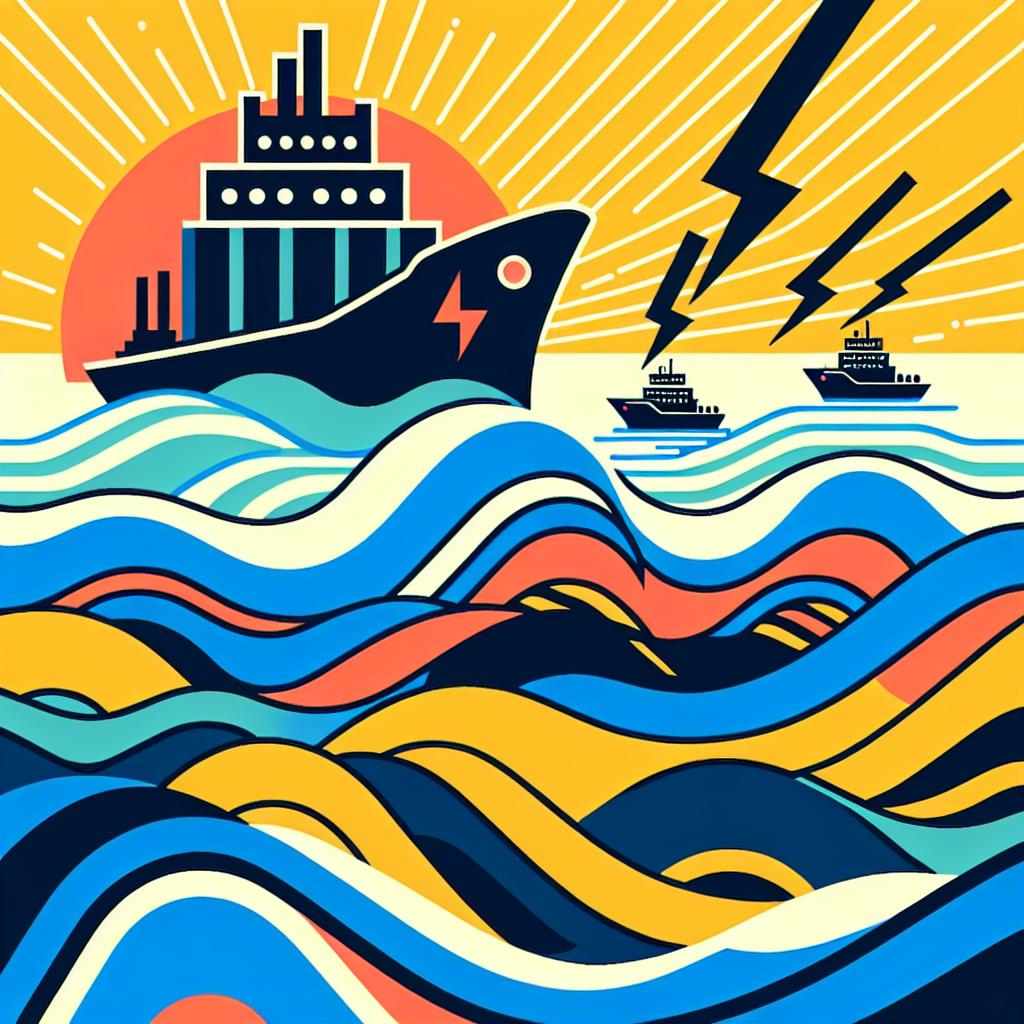The Maritime Industry’s Greener Future
The shipping industry, a vital artery of global trade, accounts for nearly 3% of global CO2 emissions. As our planet grapples with the effects of climate change and the urgent need for sustainable practices, efforts to decarbonize maritime transport have gained momentum. Electric shipping technologies are at the forefront of this movement, making waves that promise not only to reduce the carbon footprint of the sector but also to reshape how goods are transported across the seas.
Investing in Zero-Emissions Vessels
Leading the charge in this transformation are industry giant Maersk and other maritime companies, which are increasing their investments in zero-emissions vessels. These vessels are designed to operate without contributing to greenhouse gas emissions, thereby leaning on innovations that prioritize sustainability. The potential of electric and hydrogen-powered ships cannot be overstated. Inspired by extensive research and technological advancements, these vessels represent the industry’s response to both customer demand for environmentally friendly solutions and regulatory pressures.
International Maritime Organization (IMO) regulations have played a substantial role in pushing the industry towards decarbonization. With targets such as reducing greenhouse gas emissions by at least 50% by 2050 compared to 2008 levels, compliance has become a priority for shipping companies. This regulatory framework fosters a new paradigm where growth is associated not just with profitability but with political and environmental accountability.
Exploring Alternative Fuels
Migrating to electric technology also means exploring alternative fuels such as hydrogen and biofuels, which are critical components in this transition. Hydrogen, in particular, has emerged as a viable option among clean fuel alternatives. Its energy-rich nature provides a potential for longer voyages while reducing emissions significantly. Additionally, biofuels sourced from renewable resources serve as an immediate alternative that can be integrated into existing shipping infrastructures.

For an industry burdened with decades of carbon-heavy practices, an overhaul might seem daunting; yet, scalable pilot projects around the globe show how feasible implementation can be. These pilot projects validate the concepts of green shipping and create benchmarks that can guide widespread adoptions of various technologies.
The Ripple Effects of Green Innovation
The push toward electrification in shipping is not just a win for the environment but a strategic move that can potentially lead to economic benefits as well. The global shift toward sustainability creates new markets for green technologies, ushering countries and companies alike toward innovation. This competitive space may foster technological breakthroughs while generating job opportunities in emerging sectors adjacent to green shipping!
As innovation drives change, industry stakeholders must work together to nurture these developments—governments collaborating with private companies can streamline efforts to ensure that such green ships are financially viable and widely adopted. After all, effective responses against climate change require balanced collaboration across economic sectors.
With investment and emphasis on sustainability, the maritime industry is making strides towards a cleaner, greener operational future. While there’s a long way to go before ships are completely decarbonized, the intentions highlighting today’s migration toward greener vessels indicate that these waves are changing the tide of maritime operations.
Looking ahead, it remains imperative that the shipping industry remains accountable to its commitments to protect our shared environment while still conducing business. Each investment made in electrification as a mechanism for change is a step towards cleaner oceans and healthier communities.
Thus, as companies dive into the depths of technological advancement, we can only hope for a broader acknowledgment across industries about the urgency of sustainable practices. Accepting the winds of change means embracing innovation while laying the foundation for a sustainable maritime industry for generations to come.



